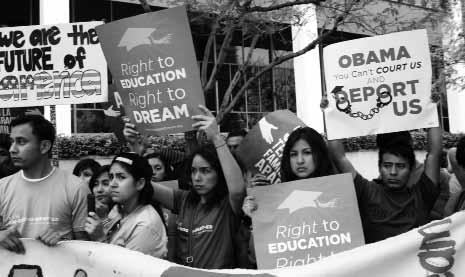
3 minute read
Contents
Presentation
In 2014 idea celebrated 15 years as a space for the convergence of struggles for public education throughout the Americas. In defense of education as a social right, we have built spaces for interchange, analysis and debate regarding privatization and the policies of dispossession of rights, and we have advanced in generating alternatives for emancipatory education as a central element for the construction of democratic societies.
Advertisement
In this issue, the reader will find articles about ten emblematic struggles carried out by diverse labour and social organizations from Canada to Argentina. In the face of offensives by transnational financial capital and its governments to take possession of education and convert it into merchandise, it is our hope that these stories contribute to a greater understanding of the importance of resistance and the construction of democratic alternatives,
Privatization policies have become widespread in many of our countries, recently finding exacerbated forms of dispossession of rights and repression in Mexico with constitutional “reforms” that erode teachers’ rights, and the right to education, and with the murder of three and the forced disappearances of 43, student teachers from the Ayotzinapa Normal School in Guerrero.
But the analyses of the situation in Peru and of California and Chicago in the usa, demonstrate the limitless voracity of capital to seize the education sector, and that neoliberal privatization reforms in the sector will not only continue, but are capable morphing and refocussing in order to overcome resistance.
The attacks on our rights across the Americas have forced us to shift from labour action for better salaries and working conditions to social and political action to improve learning conditions for our children and youth, for a sense of meaning of education as a social right. Today the struggle for our peoples’ rights compels us to build broader social alliances with grassroots movements.
It compels us to turn to traditional forms of struggle - rallies, meetings, slowdowns, strikes, and road blocks – but we have also added seminars, workshops, forums and teach-ins at the local, regional, national and international level, demonstrating that students’ and education workers’ knowledge is fundamental for solutions to the problems faced in education.
Social communication networks have become a powerful means to activate responses and consult, and to share and debate our proposals. The campaign against standardized testing (simce) in Chile and the BC Teachers’ Federation’s long strike are instructive examples.
Despite the smear campaigns against teachers’ unions, educators and even students, we continue to be social leaders and essential reference points in social and political struggles for democracy and social justice. Exemplary and moving is the case of the Honduran teachers’ organizations’ steadfast resistance to the coup d’état in their country.
The articles about current struggles in Brazil and Ecuador help clarify the limits of governments that have achieved power via broad progressive political fronts, but along the way have resumed neoliberal policies such as the use of public funds to subsidize private education or the expansion of high stakes standardized evaluation.
However, it is clear that the challenges outlined above can also be overcome. The experience of the Confederation of Education Workers of Argentina (ctera), demonstrates that it is possible to develop alternative education policies to privatization and influence their establishment as government programs.
A key tool for analysing each case is to highlight international solidarity as a central element for withstanding attacks on social and human rights, and for enriching the common programs and actions for struggle that will enable us to build societies with justice and freedom for all.
They were taken alive. Alive we want them back!
We are missing 43 student teachers in Ayotzinapa, Mexico.










